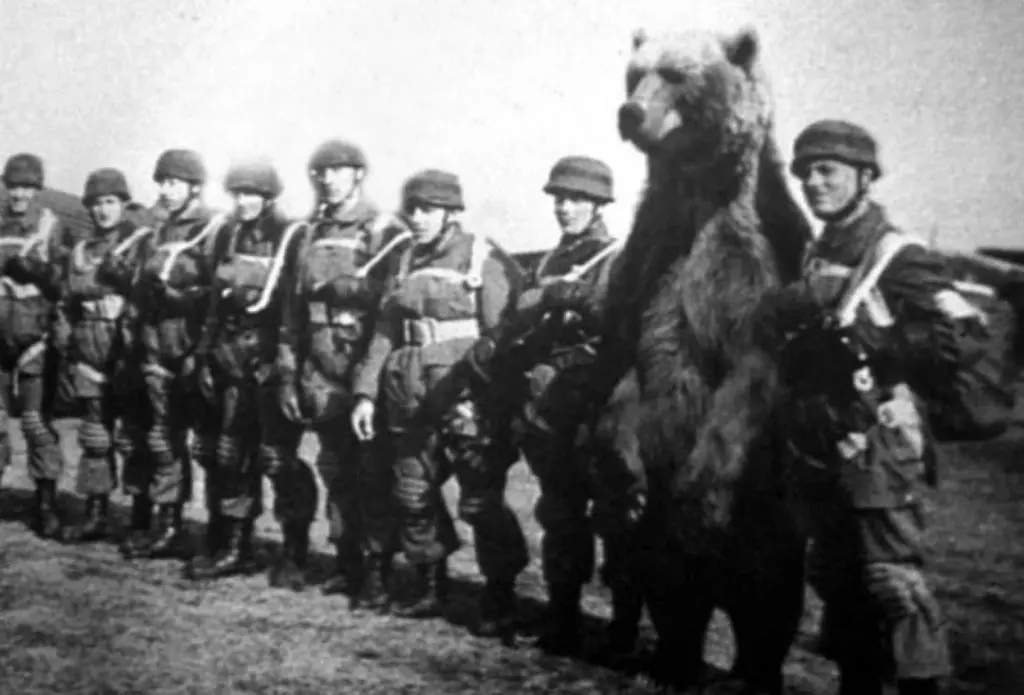The story of Wojtek the bear is one of the most remarkable tales of World War II, blending the themes of war, camaraderie, and resilience. This Syrian brown bear became an honorary soldier of the 22nd Artillery Supply Company of the Polish Army, serving alongside troops, boosting morale, and even carrying artillery shells during the Battle of Monte Cassino.
Wojtek’s journey—from an orphaned cub in Iran to a soldier in the Polish army and later a beloved figure in Scotland—highlights the unique bond between humans and animals in wartime. Let’s explore his extraordinary life.
A Cub Traded for Supplies
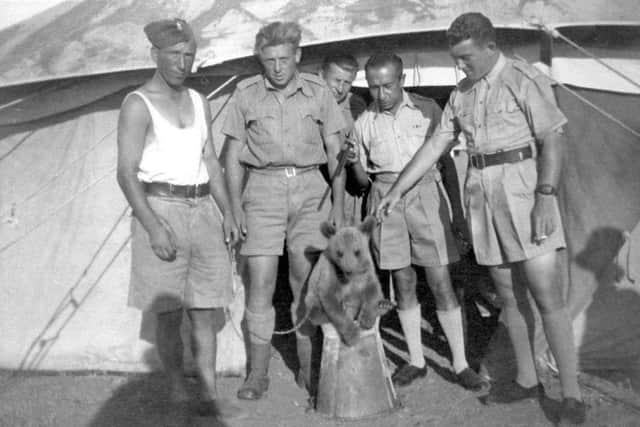
In 1942, Polish soldiers stationed in Hamadan, Iran, encountered a young shepherd with a burlap sack. Inside was a tiny bear cub, whose mother had likely been killed by hunters.
The soldiers, eager to help the cub, traded a Swiss Army knife, canned beef, and chocolate for him. They named him Wojtek—short for Wojciech, meaning “joyful warrior” in Polish.
The bear quickly became a symbol of hope and companionship for the displaced Polish troops, many of whom had endured Soviet labor camps before joining the fight against Nazi Germany.
Life in the Polish Army Camp
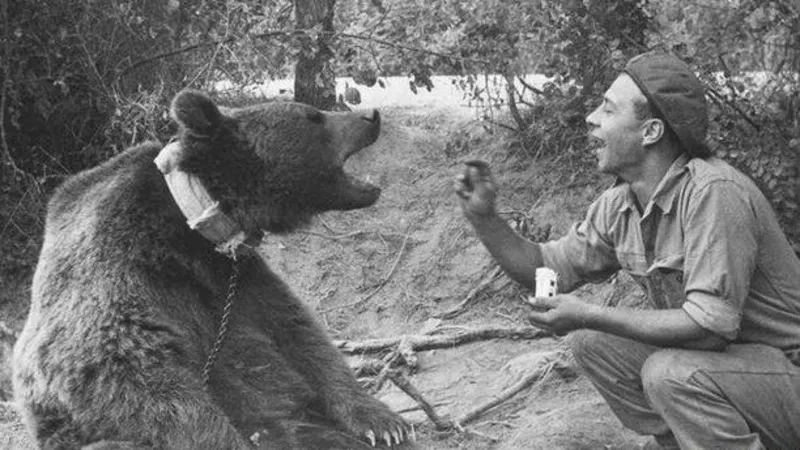
Wojtek adapted to military life surprisingly well. His caretaker, Peter Prendys, taught him to salute, wave, and march like a soldier. He was fed condensed milk from an empty vodka bottle, and as he grew, he developed a taste for honey, marmalade, and even beer—a rare luxury among troops.
Among his favorite activities:
- Wrestling and boxing with soldiers
- Riding in military trucks, first in the passenger seat, then in the back
- Taking long, cold showers, which he later learned to turn on by himself
One legendary incident occurred when Wojtek’s love for showers saved the Polish camp from a potential attack. He accidentally startled a spy who had infiltrated the camp, causing the man to surrender in fear. As a reward, Wojtek earned unlimited shower privileges and extra beer rations.
Wojtek Officially Joins the Army
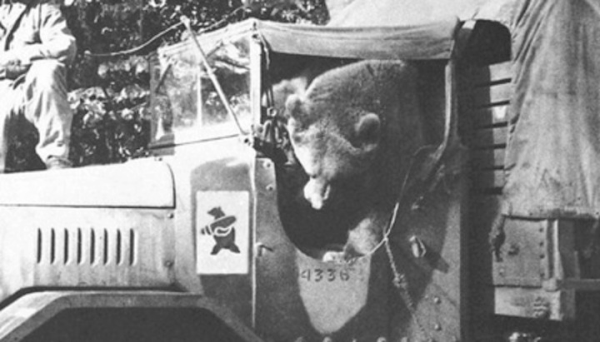
In 1944, when the 22nd Artillery Supply Company prepared to ship out to Italy, they faced a problem—military regulations forbade pets from traveling with soldiers.
To keep Wojtek with them, the unit enlisted him as an official soldier. He was:
- Given the rank of private
- Assigned a serial number
- Listed on the payroll (with double food rations!)
This made Wojtek the only bear in history officially enlisted in a national army.
The Battle of Monte Cassino
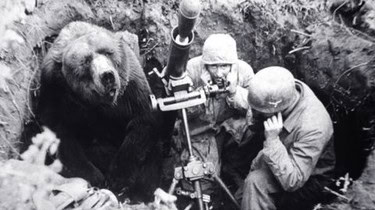
During the Battle of Monte Cassino in May 1944, one of the bloodiest battles of WWII, Wojtek reportedly took on a combat role.
Inspired by watching soldiers carry heavy artillery shells, he began mimicking them—carrying ammunition between trucks and frontline positions.
For his efforts, the unit changed its insignia to feature a bear carrying an artillery shell, forever linking Wojtek’s legacy to one of the most significant battles of WWII.
Wojtek’s Impact on Soldiers’ Morale
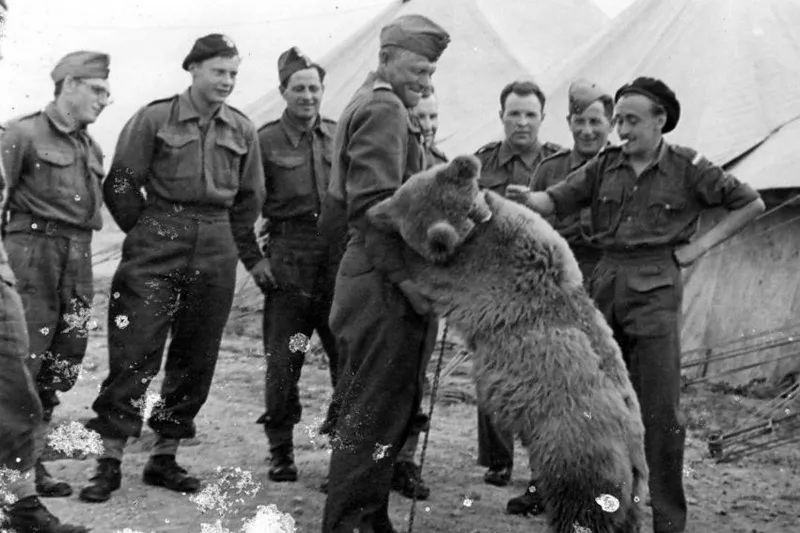
Beyond his battlefield contributions, Wojtek lifted the spirits of war-weary soldiers.
- He was a reminder of home, offering companionship in dark times.
- His playful antics provided comic relief amidst the horrors of war.
- He became a beloved figure in the Allied forces, recognized even by British and American troops.
Wojtek was not just a mascot but a brother-in-arms, deeply respected by his fellow soldiers.
Wojtek’s Post-War Journey to Scotland
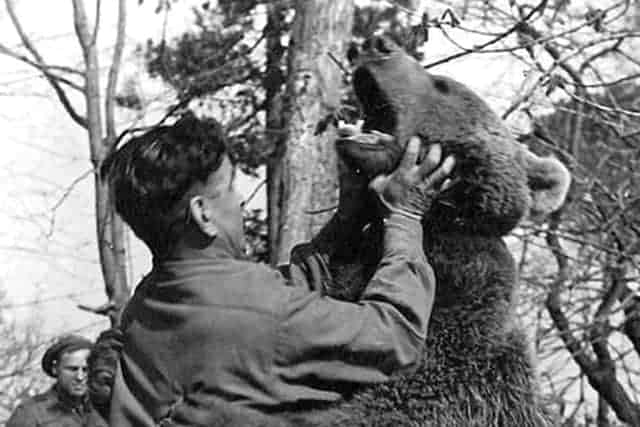
After the war, Wojtek and his unit were relocated to a Polish resettlement camp in Scotland.
In the camp, he:
- Enjoyed daily beer and unlimited food rations
- Swam in a special pool built for him
- Helped transport fence posts on Scottish farms
However, as troops demobilized, concerns arose about Wojtek’s future. He had never lived in the wild, and sending him back to Poland was risky due to the communist takeover.
Wojtek’s Final Home
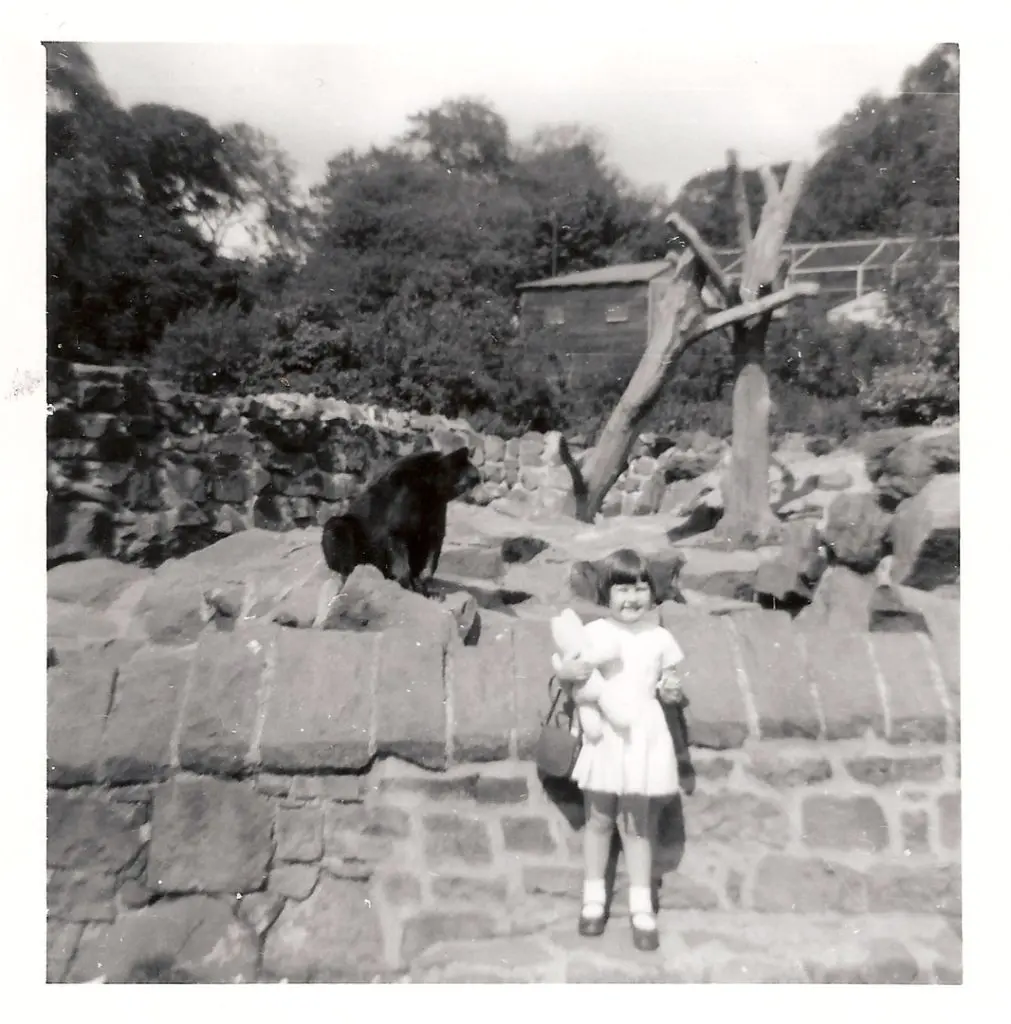
In 1947, Wojtek was relocated to Edinburgh Zoo, where he became a major attraction.
- Former Polish soldiers visited him, bringing beer, candy, and cigarettes.
- He still recognized and responded to Polish commands.
- He remained gentle and social, interacting with visitors despite his massive size.
Wojtek spent the rest of his days as a beloved figure in Scotland, living until 1963.
The Legacy of Wojtek
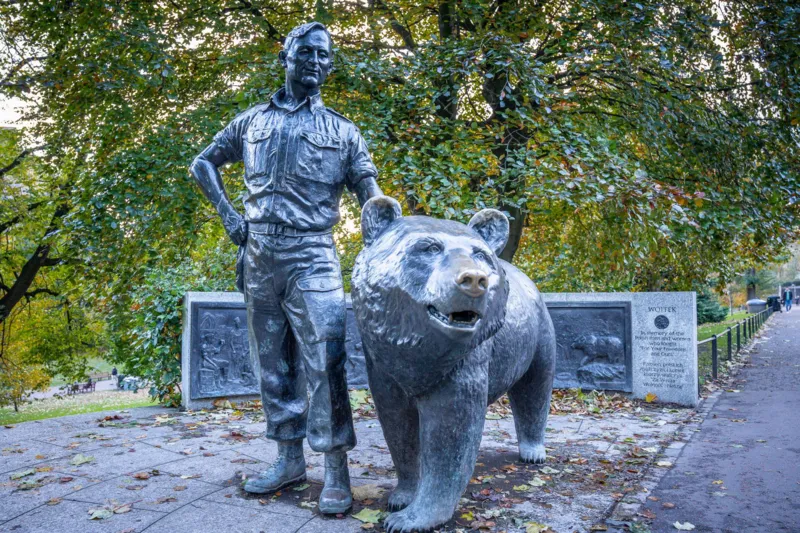
Though Wojtek’s physical presence ended in 1963, his legacy continues to inspire:
- Statues of Wojtek stand in Edinburgh, Kraków, and London, honoring his service.
- His story is taught in Polish schools, ensuring future generations remember his role.
- Books, documentaries, and even a play, “The Bear Who Went to War,” keep his memory alive.
Wojtek’s Unique Place in History
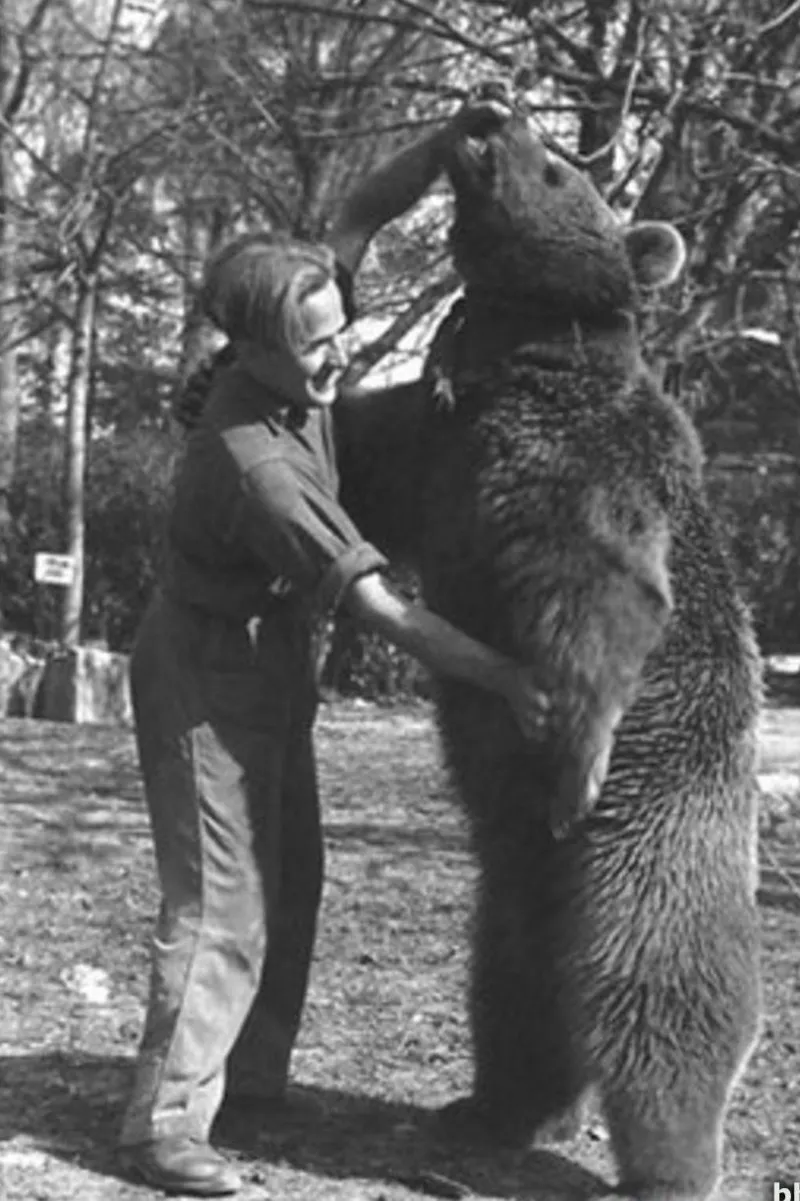
Throughout history, animals have played significant roles in military operations, including:
- Horses and mules for transportation
- Pigeons for delivering messages
- Dogs for tracking and search-and-rescue
But Wojtek remains unique as a bear who was not just a mascot but an enlisted soldier.
Wojtek in Popular Culture
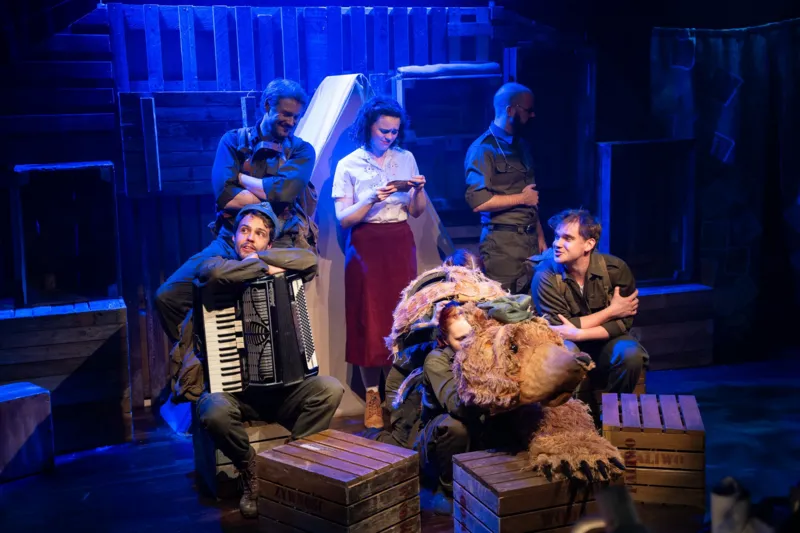
Wojtek’s story has inspired numerous works, including:
- Children’s books and novels
- Films and TV adaptations
- Video games featuring Wojtek as a character
His legacy endures as a tale of friendship, courage, and the extraordinary bonds between humans and animals.
What Can Wojtek Teach Us Today?
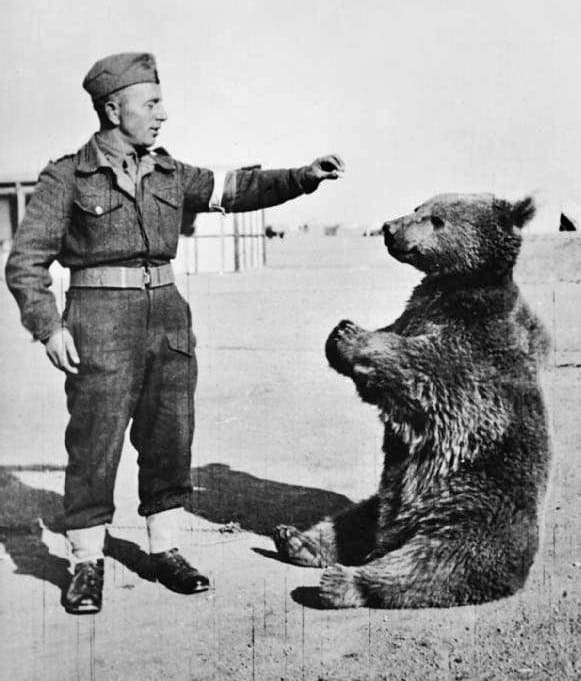
Wojtek’s story offers valuable lessons:
- Companionship can emerge in the most unlikely places.
- Animals have a deep emotional impact on human resilience.
- History’s forgotten heroes—whether human or animal—deserve recognition.
His journey from a cub in Iran to a war hero in Italy and an icon in Scotland continues to captivate people worldwide.
Wojtek’s Emotional Goodbye
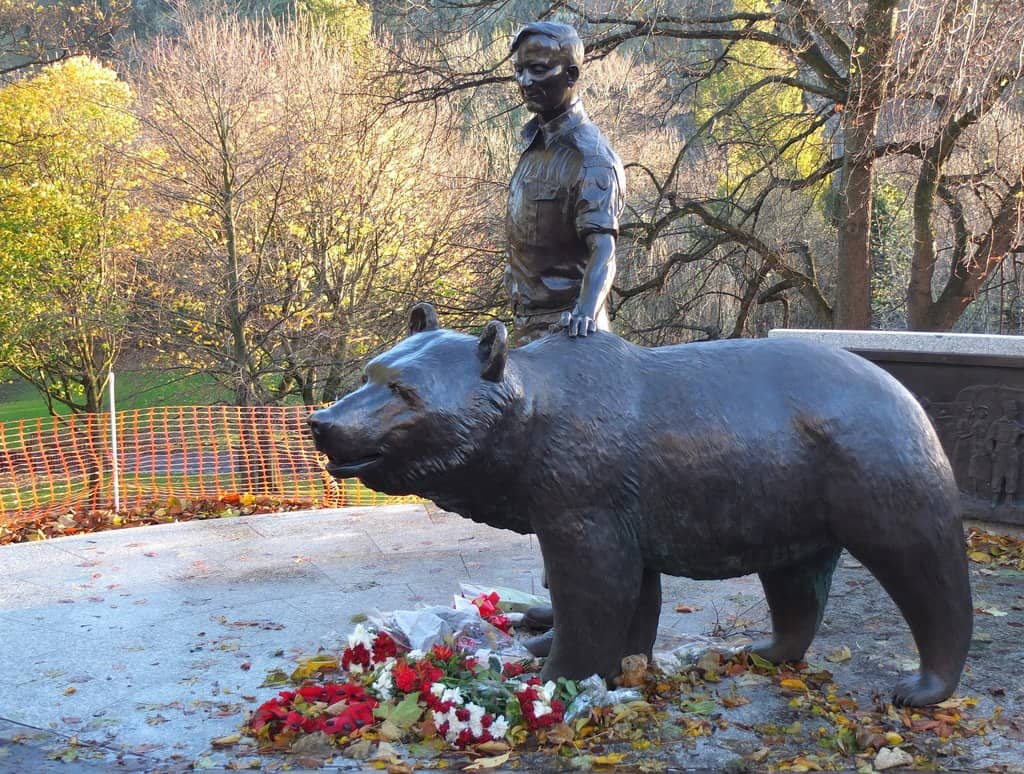
One of the most touching moments in Wojtek’s life was when his former comrades visited him in Edinburgh Zoo.
One veteran, upon seeing Wojtek for the last time, broke into tears, saying:
“He kept us going through the war. We were all displaced—him and us. He was one of us.”
Wojtek was more than just a bear. He was a brother, a friend, and a true soldier—one whose memory lives on as a testament to the unbreakable bonds formed in the most difficult times.
- Deadly Beauties: The World’s Most Lethal Jellyfish - August 9, 2025
- How Native American Lunar Cycles Enhance Modern Zodiac Interpretations - August 8, 2025
- 10 Golden Facts About Our Favorite Retriever - August 8, 2025

